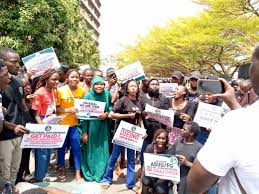Nigeria’s educational system faces numerous challenges that hinder its growth and ability to meet international standards. The issues plaguing the system range from inadequate funding and unstable power supply to frequent strikes by the Academic Staff Union of Universities (ASUU). These factors significantly impact the quality of education and the future of the country’s youth. Professor Abel Idowu Olayinka, a respected figure in Nigeria’s academic circles, sheds light on these issues, emphasizing the urgent need for comprehensive reforms.

Impact of Strikes
Strikes have become a persistent feature of Nigeria’s public university. Professor Olayinka highlights the disruption these strikes cause, often extending the duration of academic programs. “Students who enroll for a four-year course end up spending five to six years,” he notes, illustrating the unpredictability students face. The consequences of these extended timelines are far-reaching, affecting students’ career prospects and contributing to a brain drain as many seek opportunities abroad.
The recurrent strikes are primarily driven by unresolved grievances related to staff salaries, working conditions, and inadequate facilities. ASUU members have long demanded better remuneration and access to academic resources such as journals and conferences. The lack of autonomy in university governance further exacerbates their dissatisfaction. As Professor Olayinka points out, “When universities face bureaucratic hurdles or external interference in academic matters, it undermines their ability to innovate.”
The Role of Funding
Funding is a critical issue that underpins many of the challenges faced by Nigerian universities. Public universities rely heavily on government subsidies, which are often insufficient to cover operational costs, staff salaries, and infrastructure development. While the Tertiary Education Trust Fund (TETFund) provides some support, it is not enough to bridge the funding gap.
Professor Olayinka stresses the importance of adequate funding for sustainable growth. “Achieving 24-hour power supply is feasible with generators, inverters, solar, and backup plans,” he says, underscoring the need for a reliable power supply. The funding constraints also affect the quality of education, as universities struggle to maintain basic facilities, let alone invest in cutting-edge research and innovation.
Politicians and Policy Reforms
The disconnect between policymakers and the realities of the educational system is a significant barrier to reform. Despite some politicians being products of Nigerian universities, Professor Olayinka argues that there is a lack of political will to enact meaningful changes. “Their insufficient understanding often results in inadequate policy initiatives,” he explains, calling for greater collaboration among stakeholders, including parents, lecturers, alumni, and the government.
Improving the educational system requires a multifaceted approach that addresses the root causes of the challenges. Professor Olayinka advocates for policies that prioritize education at all levels, emphasizing that “adequate funding must be allocated to education to safeguard our country’s future.”
While public universities struggle with strikes and funding issues, private universities in Nigeria present an alternative model. These institutions, though more expensive, often have more stable academic calendars and better facilities. However, their accessibility is limited to a small segment of the population due to high tuition fees.
Balancing the strengths of both public and private institutions could provide a pathway forward. Encouraging public-private partnerships and diversifying funding sources might help alleviate some of the financial burdens on public universities, enabling them to offer better services and education.
Nigeria’s educational system stands at a crossroads. The challenges are formidable, but so is the potential for transformation. As Professor Olayinka emphasizes, addressing these issues requires a concerted effort from all stakeholders. By prioritizing education, investing in infrastructure, and fostering collaboration, Nigeria can create a system that not only meets international standards but also empowers its youth to thrive in an increasingly globalized world.



